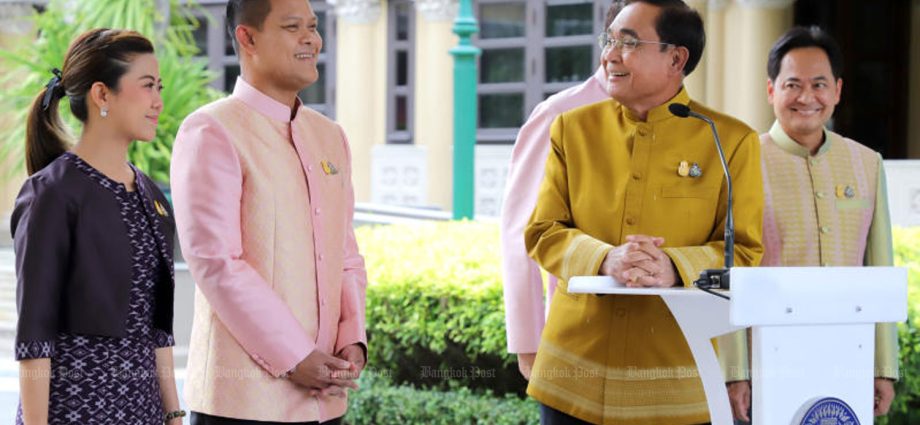Anti-graft body should hold Prayut and ministers accountable after charter court ruling, say rights groups

Civil society groups have asked the National Anti-Corruption Commission (NACC) to investigate Prime Minister Prayut Chan-o-cha and his cabinet over the postponement of the anti-torture law.
Led by the Institute for Justice Reform (IJR) and a support group for relatives of the Black May 1992 victims, they said Gen Prayut and the cabinet should be held accountable for damage caused by the delayed enforcement following the Constitutional Court ruling.
The groups said the Prayut government deliberately violated the charter when it issued an executive decree postponing enforcement of Sections 22–25 of the Prevention and Suppression of Torture and Enforced Disappearance Act.
The anti-graft agency should launch an investigation against Gen Prayut and the cabinet under Section 235 of the charter and submit its findings to the Supreme Court’s Criminal Division for Holders of Political Positions, according to the groups.
The complaint came after the Constitutional Court ruled last month that the executive decree postponing enforcement of the four sections was a breach of Section 172 of the charter. With the court ruling, the anti-torture law came into force in its entirety on Feb 22 this year.
Pol Col Wirut Sirisawasdibut, secretary-general of the IJR, said that the postponement of the essential law undermined enforcement and Gen Prayut and the cabinet should be held responsible.
The cabinet this month created a special panel to lay down regulations and ensure compliance across all stete agencies.
Prolific petitioner Srisuwan Janya has also asked the NACC to begin an inquiry against the cabinet and former justice minister Somsak Thepsutin over the decree.
Mr Srisuwan said Mr Somsak proposed the postponement of the law to the cabinet, which subsequently issued the controversial decree before it was ruled unconstitutional.
He said the cabinet’s action was deemed a serious breach of ethics, and the NACC was obliged to carry out an investigation and uphold ethics standards for political office holders.
Gen Prayut, however, played down the prospect of the investigation, saying the decree was issued out of necessity and the cabinet had consulted Deputy Prime Minister Wissanu Krea-ngam.
Mr Wissanu has explained that because the government that issued the decree ended with the dissolution of the House in March, it was not legally compelled to resign. A charter breach committed while a government was still in office would result in the cabinet stepping down.
The anti-torture law was published in the Royal Gazette on Oct 25 last year and set to take effect on Feb 22 this year.
However, the cabinet approved an executive decree postponing enforcement of Sections 22-25 to Oct 1, citing a lack of budget to buy equipment, especially police body cameras, and a shortage of skills as reasons for the delay. It caused an uproar, prompting a group of MPs to seek the Constitutional Court ruling.

